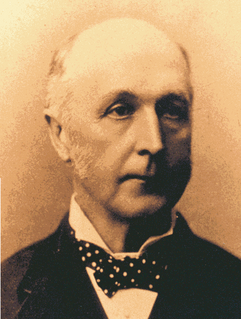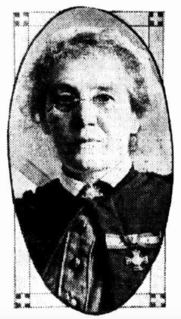Related Research Articles

William Wyatt was an early settler and philanthropist in South Australia. He was the third interim Protector of Aborigines in the colony between 1837 and 1839, worked on documenting the Kaurna language of the local Australian Aboriginal inhabitants of Adelaide and was a member of many boards, involved with fields as diverse as education, medicine and horticulture.

The Register, originally the South Australian Gazette and Colonial Register, and later South Australian Register, was South Australia's first newspaper. It was first published in London in June 1836, moved to Adelaide in 1837, and folded into The Advertiser almost a century later in February 1931.

Frederick Norton Manning, was a medical practitioner, military surgeon, Inspector General of the Insane for the Colony of New South Wales, and was an Australian Lunatic Asylum Superintendent. He was a leading figure in the establishment of a number of lunatic asylums in the colonies of New South Wales and Victoria, and participated in inquests and reviews of asylums throughout the colonies.

Robert Cock was one of the first European explorers of the Adelaide region of South Australia following the establishment of the colony in December 1836.

William Ranson Mortlock was a grazier and politician in colonial South Australia.
Robert Waters Moore M.R.C.S. born in Cork, Ireland, was a prominent surgeon and medical practitioner in the early days of the colony of South Australia. He succeeded Dr. William Gosse as Colonial Surgeon.
William Gosse was a medical practitioner in the early days of South Australia.

John Brodie Spence was a prominent Scottish-born banker and politician in the early days of South Australia. He was a brother of the reformer Catherine Helen Spence.
William Rounsevell was a businessman of Cornish origins who founded a livery stable and mail coach business in the early days of South Australia. His sons John Rounsevell (c.1836–1902) and Ben Rounsevell (1842–1923) were prominent businessmen, pastoralists and politicians in South Australia.
D. & J. Fowler Ltd. was a wholesale grocery company in Adelaide, South Australia, founded as a retail establishment by David Fowler in 1854, before becoming a leading wholesale and indenting firm in South Australia. They were the creators and owners of the well-known Lion brand, which included confectionery, flour, coffee, canned fruit and other goods; Lions brand flour endures, under different ownership today. The firm's interests and holdings were extensive, including the Adelaide Milling Company, the Robur Tea Company (1931) and its subsidiary the Oriental Tea Company, Adelaide Bottle Company (1912) and others.

Dr. John Rankine, was a landowner and politician in the early days of the Colony of South Australia. He is recognised as founding the township of Strathalbyn

Robert Cottrell was a coachbuilder and politician in the colony of South Australia. His first sojourn in Australia was in Maitland, New South Wales and his last near Maitland, South Australia.
Frederick Spicer was a medical doctor and politician in the colony of South Australia.

George Mayo was a medical practitioner in the colony of South Australia.

Maurice Salom was a businessman and politician in the colony of South Australia.
Lieutenant George Frederick Dashwood RN, frequently referred to as "Captain Dashwood", was a naval officer, public servant and politician in South Australia. He was appointed an acting member of the Legislative Council of South Australia, serving from June 1843 to June 1844.
William Henry Clark was a brewer in South Australia, the founder of the Halifax Street brewery, an antecedent of the West End Brewery.
Horatio Thomas Whittell MD., MRCS., generally referred to as H. T. Whittell or H. Thomas Whittell, was a medical doctor in South Australia and Adelaide's City Coroner.
William Lennox Cleland was a medical doctor in South Australia, for 40 years in charge of Parkside Lunatic Asylum.

Margaret Graham was a nurse at the centre of a dispute dubbed the "Adelaide Hospital Row" at the Adelaide Hospital in 1894. She overcame this dubious distinction to become the highly regarded Matron of the hospital, then one of the first Australian nursing Matrons to serve at the front during World War I.
References
- ↑ "The Colonial Surgeon: Health of the Emigrants". South Australian Register . II (80). 3 August 1839. p. 4. Retrieved 6 October 2017– via National Library of Australia.
- ↑ "Latest News". Evening Journal . II (1474). Adelaide. 3 January 1870. p. 2. Retrieved 6 October 2017– via National Library of Australia.
- ↑ "Telegrams". The Border Watch . 9 (649). South Australia. 15 January 1870. p. 2. Retrieved 6 October 2017– via National Library of Australia.
- ↑ "The Colonial Surgeon". The Advertiser . XXXIX (11787). Adelaide. 28 July 1896. p. 4. Retrieved 6 October 2017– via National Library of Australia.
- ↑ "South Australian Parliament". The Advertiser . LV (16, 886). Adelaide. 28 November 1912. p. 13. Retrieved 6 October 2017– via National Library of Australia.
- ↑ "Appointment of Colonial Surgeon". South Australian Register . XXII (3775). 11 November 1858. p. 3. Retrieved 6 October 2017– via National Library of Australia.